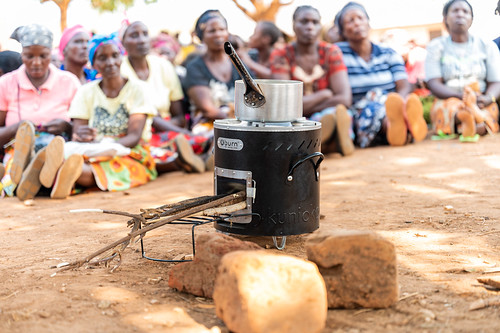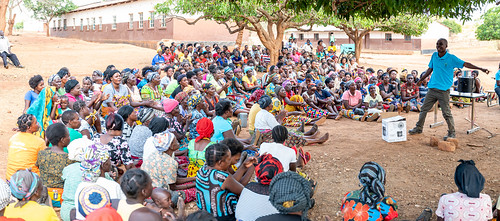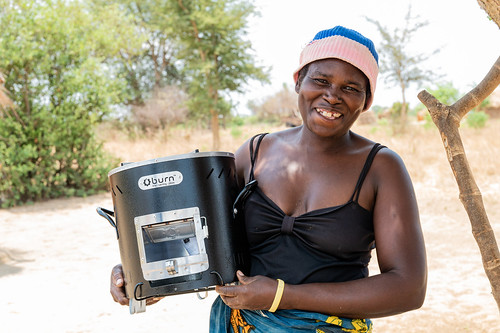This project, supported by the GoClimate community, improves health conditions and quality of life on top of fighting climate change in Zambian households. Consumption of local wood fuel is reduced by up to 70% with these improved cookstoves. This leads to a range of positive effects, both for the environment and for people’s health.
The stoves save 4.67 tonnes of wood per household per year. This equates to a considerable reduction in deforestation, which in turn helps preserve biodiversity and protect ecosystems.
Thanks to using less wood fuel this project contributes to that 549,123 less tonnes of CO2e have been released into the atmosphere during six months (its last monitored period June-December 2023).
This project is an excellent example of how climate action can be combined with improved health, increased gender equality, and sustainable development. The project started in 2021 and so far 99% of project households reported a reduction in smoke (or particulate matter) after the introduction of the stoves. 99.5 % reported time savings; female beneficiaries may use time saved collecting fuel or cooking to pursue other education or economic activities. By addressing multiple challenges simultaneously, the project creates a positive change that benefits both people and the environment in Zambia.
Background
Over 700 million Africans cook on three-stone fires. It’s an inefficient type of cooking when it comes to both the amount of wood fuel needed and the time it takes to collect and cook on these fires.
On top of that the smoke from open fires causes 600,000 premature deaths each year in Africa. It’s the second-highest health risk on the continent.
Comments from the participants in the project
Almost 100,000 stoves have been distributed across Zambia within this project. The improved cookstoves are replacing inefficient, traditional 3-stone fires. Most participants collect wood for free while a few of them buy it. They cook both inside and outside the home which is made easy with these portable cookstoves. Positive comments from participants include that the cookstoves use less wood, cook faster, are stable and safer, produce less smoke and are user friendly. A few of the participants still use an alternative stove, mostly the 3-stones fires as a complement, something that has been taken into account when calculating the emission reductions of this project. The only change requested from participants was to produce a stove which can accommodate two pots.
How do the improved cooking stoves (ICS) work?
The cookstoves have an improved heat transfer from the combustion chamber to the cooking pot. It saves both cooking and fuel collection time.
The design of the stoves optimizes the combustion chamber shape, amount of fuel and air flow through the stove. Thermal energy is maximized by reducing the thermal mass of the stove minimizing heat loss through the sides and bottom of the stove. The cooking surface is positioned at the optimal distance from the fire providing optimal gas flow needed for efficient heat transfer.
The global sustainability goals
This project contributes to the following Global Sustainability Goals;
Good Health and Wellbeing (3) – 99% of households participating in the project reported a reduced smoke and thus improved indoor air quality. According to WHO, women and children disproportionately bear the greatest health burden from polluting fuels in homes as they typically take care of household chores such as cooking and spend more time exposed to harmful smoke from polluting stoves.
Gender Equality (5) – time savings for women who do not have to collect as much fuel and get access to a faster cooking method. Firewood collectors among the participants in this project are mainly female. The average time saved for fuel wood collection was calculated to 3.2 hours a week and time saved for cooking was around 2.5 hours a day on average.
Affordable and clean energy (7)
Decent work and Economic Growth (8) – in 2023 16 people (11 male and 5 female) were employed in VPA (Voluntary Project Activity) 1 and 3 in Zambia. They are working in the permanent office and as monitoring staff. Since all distribution of cooking stoves is done now, the number of employees is lower than during the first year.
Responsible Consumption and Production (12) – wood fuel savings due to the higher thermal efficiency of the burning stoves. In total each distributed stove saves 4.67 tonnes of wood per year.
Climate action (13) – during the last monitored period June-December 2023 there has been an emission reduction of 549,123 tonnes of CO2e.
Project facts
Project name: TASC Clean Cooking POA – VPA 3 (Zambia)
Certification: Gold Standard
Project start: 2021
Area: The project is implemented across Zambia and not limited to any specific provinces.
Number of distributed stoves: 99,785
Wood savings per stove and year: 4.67 tonnes
Last monitoring period: June-December 2023
Crediting period: 15 years (5 years, twice renewable)
Funding: There is no public funding. This project is funded only by the private sector.





